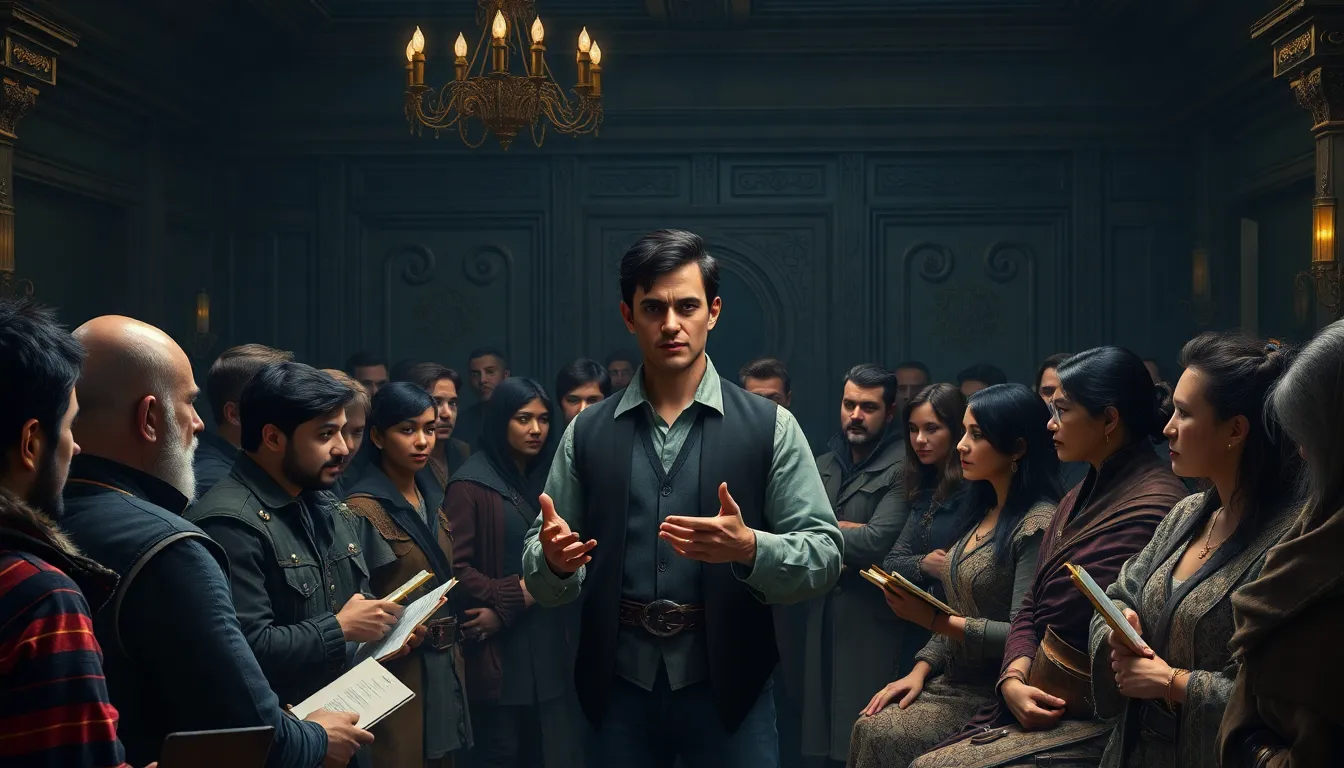Table of Contents
ToggleIn the vast world of Tamriel, where dragons soar and heroes rise, there lies a hidden gem that often gets overshadowed by the more glamorous factions: the Oblivion Guild. This isn’t just any run-of-the-mill guild; it’s a quirky blend of misfits and masterminds, all united under the banner of chaos and ambition. If you’ve ever wondered how to lead a group of eccentric characters while navigating the treacherous waters of ambition and betrayal, you’re in for a treat.
Overview of Oblivion Guild Leadership
Oblivion Guild leadership plays a crucial role in guiding the faction of diverse individuals. Leaders must balance ambition with the unique behaviors and motives of guild members. Each member brings distinct skills and perspectives, making strategic decision-making essential for cohesion.
Members often exhibit varied levels of loyalty, which can create challenges. Trust building within the guild fosters a supportive atmosphere. Effective leaders navigate interpersonal dynamics while promoting collaboration. Adaptability is key, as leaders frequently face shifting alliances and hidden agendas.
Communication remains vital in conveying objectives and expectations. Clear guidelines help align the guild’s operations with its goals. Regular meetings allow leaders to assess progress and address any issues promptly.
Leaders harness the strengths of members by delegating tasks based on individual expertise. Recognizing contributions boosts morale, enhancing productivity. Succinct evaluation of member performance contributes to effective leadership, ensuring that skills are utilized efficiently.
Conflict resolution skills become indispensable in managing disputes. Addressing grievances quickly prevents rifts from forming and helps maintain unity. Leaders often employ mediation techniques to facilitate resolution, emphasizing a collective approach.
Successful Oblivion Guild leadership requires understanding the complexities of ambition and loyalty. Fostering a sense of community while navigating conflicts ensures long-term success for the guild and its members.
Key Characteristics of Effective Leadership

Effective leadership within the Oblivion Guild hinges on specific characteristics. Leaders must embody communication skills and sharp decision-making abilities to navigate the complexities of their diverse membership.
Communication Skills
Clear communication remains essential for ensuring all members align with the guild’s objectives. Leaders often hold regular meetings, creating a platform for updates and to discuss concerns. Active listening fosters trust and encourages member input, leading to improved collaboration. Emphasizing transparency in discussions helps clarify each member’s role and responsibilities. Utilizing various communication channels, both formal and informal, enhances the flow of information. Frequent feedback sessions allow members to voice their perspectives, contributing to a unified vision.
Decision-Making Abilities
Sound decision-making is crucial in a faction like the Oblivion Guild, where motives often clash. Leaders should analyze situations thoroughly, weighing potential outcomes before making choices. Involving members in the decision-making process can boost buy-in and comprehension. Quick, informed decisions may prevent conflicts from escalating, maintaining peace within the guild. Additionally, adapting strategies based on new information showcases a leader’s agility. Leaders benefit from reflecting on past decisions to refine future approaches. Prioritizing both the guild’s goals and individual aspirations drives success and strengthens unity.
Leadership Styles in Oblivion Guild
Different leadership styles play vital roles within the Oblivion Guild. Leaders adapt their approaches based on member dynamics and goals, shaping the guild’s overall direction.
Autocratic Leadership
Autocratic leadership involves making decisions unilaterally, where a leader exerts significant control. This style may benefit situations requiring quick decisions or clarity in direction. Leaders simply outline tasks and enforce compliance without seeking member input, fostering a structured environment. However, this approach might suppress creativity and discourage member engagement. In a guild filled with diverse personalities, rigid control could breed resentment. Balancing authority with openness enables leaders to maintain order without stifling collaboration. Successful autocratic leaders communicate expectations clearly and remain consistent in their directives. Adopting this style during critical moments can strengthen the guild’s operations when effective execution is key.
Democratic Leadership
Democratic leadership encourages participation and values member input. Leaders using this approach foster inclusivity by soliciting feedback and building consensus. This style creates a sense of ownership among members, enhancing morale and engagement. Clear communication is crucial as leaders articulate group decisions and encourage collaboration. Regular meetings provide opportunities for discussion and idea exchange, promoting a culture of transparency. Utilizing democratic leadership may lead to innovative solutions by integrating diverse perspectives. Enhanced cooperation can emerge as members feel valued and invested in the guild’s success. Leaders thrive by creating an environment where everyone contributes, navigating ambition alongside member aspirations.
Challenges Faced by Guild Leaders
Guild leaders in the Oblivion Guild encounter unique challenges while managing their diverse teams. Navigating interpersonal dynamics proves essential, as conflicts often arise from differing ambitions and loyalties.
Conflict Resolution
Effective conflict resolution strategies are crucial for maintaining harmony within the guild. Understanding each member’s perspective facilitates constructive dialogue. Leaders can employ mediation techniques, ensuring that all voices are heard. It’s beneficial to create an inclusive environment where members feel comfortable expressing their concerns. Fostering a culture of collaboration reduces tension and encourages teamwork. Clear guidelines for conflict resolution can also help establish expectations and streamline processes.
Motivating Members
Motivating a diverse group of members requires tailored approaches. Recognizing individual contributions significantly boosts morale. Guild leaders can set achievable goals, providing members with a sense of purpose. Celebrating small victories enhances motivation and reinforces teamwork. Additionally, offering opportunities for growth keeps members engaged and invested in the guild’s success. Leaders should also encourage collaboration, allowing members to feel a sense of ownership in guild achievements.
Leading the Oblivion Guild demands a unique blend of skills and insights. Leaders must embrace the guild’s diversity while fostering a sense of unity among its members. By prioritizing communication and trust, they can navigate the complexities of ambition and loyalty.
Adapting leadership styles to fit the guild’s evolving dynamics is essential. Whether opting for autocratic or democratic approaches, effective leaders empower members and encourage collaboration. This adaptability not only strengthens relationships but also enhances the guild’s overall performance.
Ultimately, successful leadership in the Oblivion Guild hinges on understanding each member’s motivations and creating an inclusive environment. By doing so, leaders can inspire their teams, celebrate achievements, and ensure a thriving community that stands the test of time.




